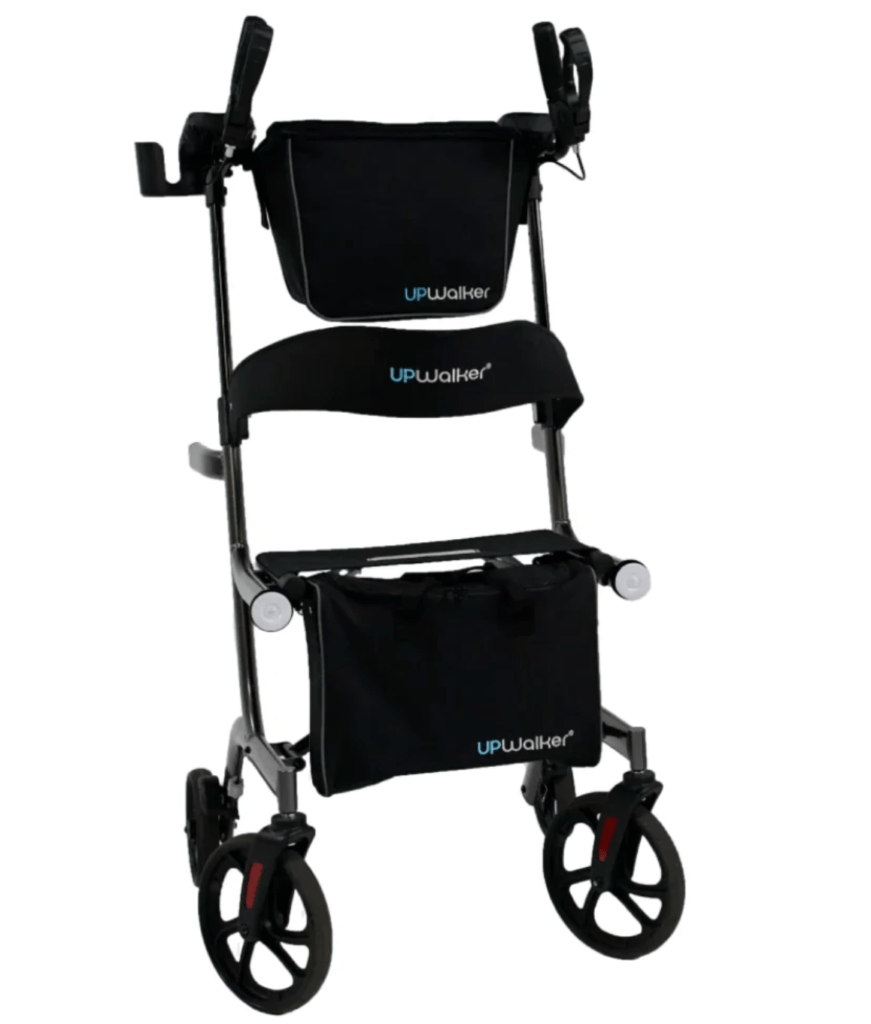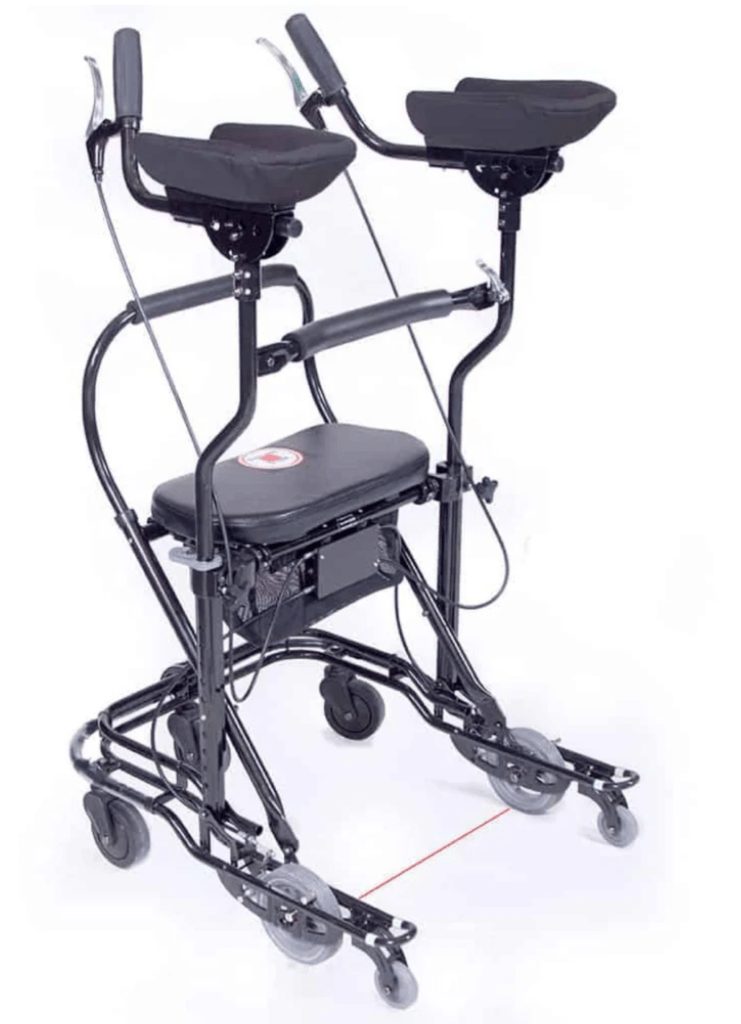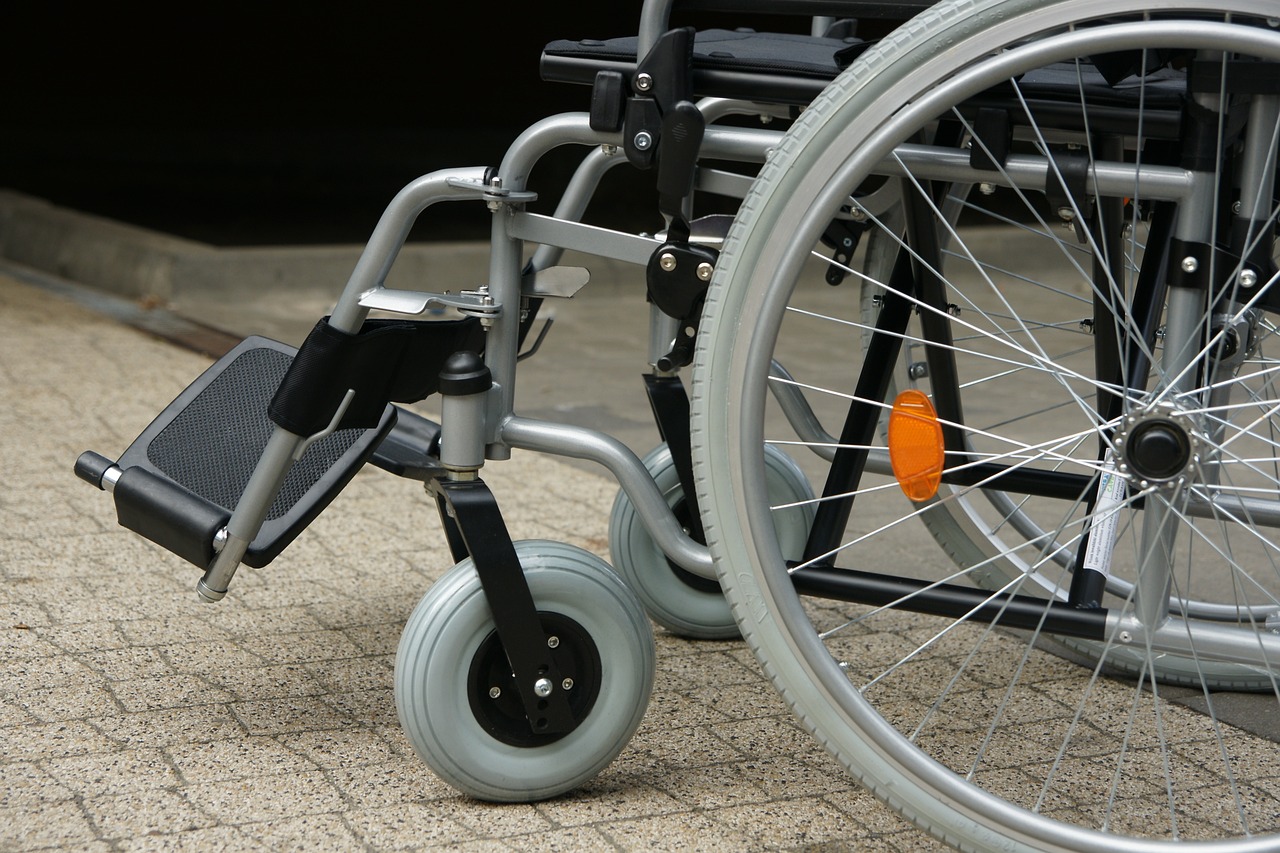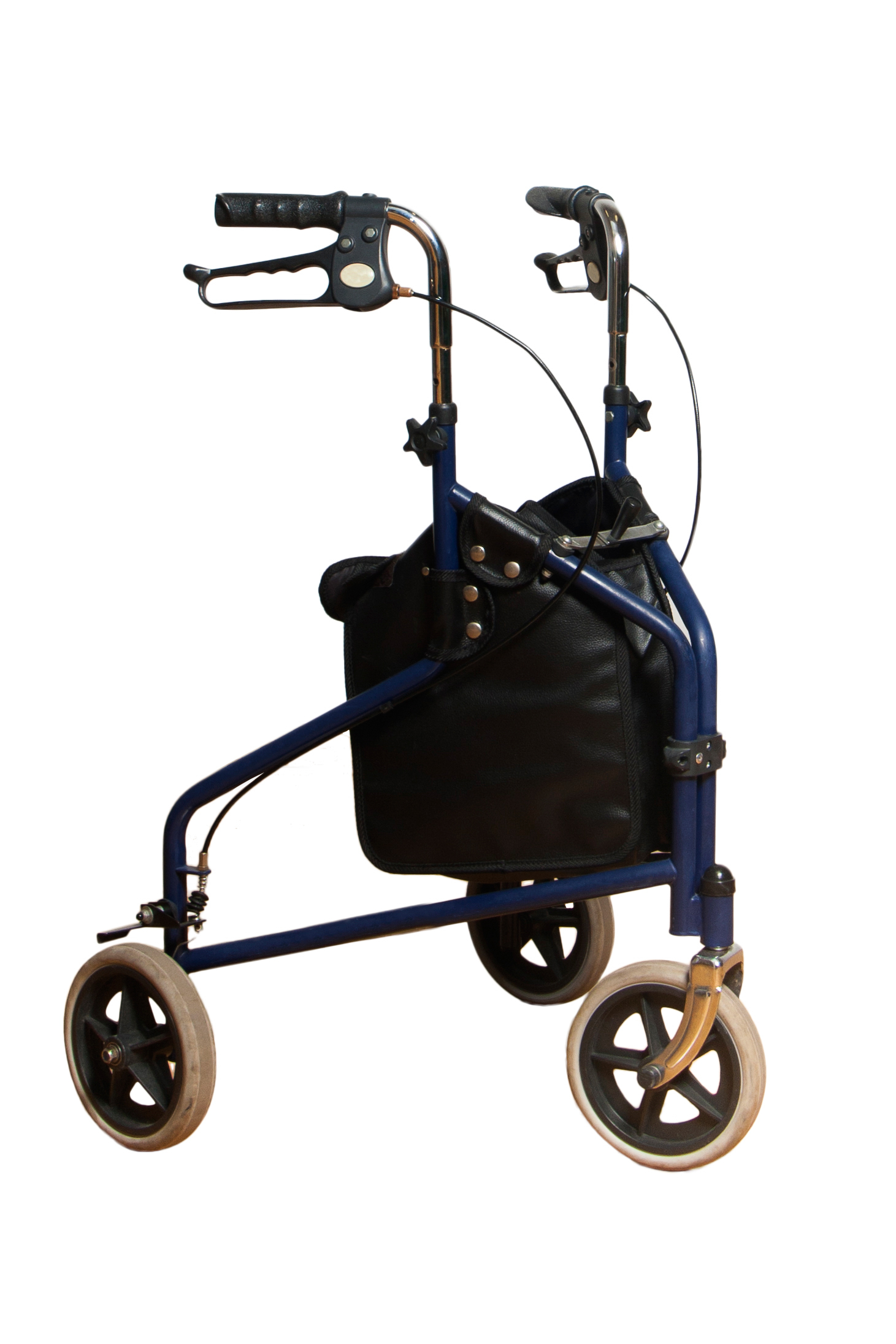Upright walkers, aka “stand-up walkers”, have gained popularity for their ergonomic design, which promotes better posture and helps reduce strain on the back and shoulders.
These devices are particularly appealing to individuals who tend to hunch forward when using a standard walker or rollator or who are otherwise struggle to maintain upright posture.
Upright walkers can definitely be helpful for improving posture and mobility, but these devices also tend to be more expensive than your run-of-the-mill walkers.
Which leads to the important question as to whether or not Medicare will cover these devices?
Long-story-short: no, it’s unlikely that Medicare will cover the cost of an upright walker, but it may not be impossible.
If you’re interested in the longer story, keep reading.
In this article, we’ll go over Medicare’s policies on Durable Medical Equipment (DME) and discuss whether upright walkers qualify for coverage.
Understanding the nuances of Medicare’s guidelines can help you make an informed decision about acquiring an upright walker for yourself or a loved one.
Understanding Medicare Coverage for Durable Medical Equipment (DME)
Medicare Part B provides coverage for Durable Medical Equipment (DME), which includes medically necessary items prescribed by a healthcare provider.
There’s a lot of info crammed into that sentence, so let’s take a step back and really digest what we’re saying here.
In order to qualify for Medicare coverage, the equipment must meet the following criteria:
- Medically Necessary: The device must be deemed essential for the treatment of a medical condition.
- Prescribed by a Doctor: A healthcare provider must prescribe the equipment as part of a treatment plan.
- FDA Approved: The device must be classified as DME and approved by the Food and Drug Administration (FDA).
- Used at Home: The equipment must primarily be for use in the patient’s home.
Examples of DME covered by Medicare include standard walkers, canes, wheelchairs, and hospital beds.
While standard walkers are commonly covered, the same cannot always be said for upright walkers.

DME Providers
The above may be what it takes for DME to qualify under Medicare’s standards, but that’s only half the story.
You still need to find a DME provider that accepts Medicare insurance in your area.
In order for you to obtain any medical equipment through Medicare, you have to work with a company/store that works with Medicare and accepts their payment.
This means you can’t use your Medicare insurance to purchase any walker you like off the internet (even if the walker itself qualifies as DME).
So, even if Medicare accepted upright walkers as a legitimate kind of DME (which they should), you would still need to find a DME company that carries them and accepts Medicare as payment.
And this is where you’re likely going to run into trouble.
Personally, I can’t find any DME companies near me that carry upright walkers in the first place.
Here’s a link where you can find DME companies that accept Medicare near you – feel free to reach out to any and ask about upright walkers.
Medicare Coverage for Upright Walkers
Upright walkers are relatively new compared to traditional walkers.
Their advanced design includes features like adjustable forearm rests, padded grips, and in most cases, built-in seats.
However, Medicare does not automatically cover all types of assistive devices, including upright walkers, even if they offer significant benefits.
Currently, Medicare’s coverage for upright walkers seem to be limited and here’s why:
- Classification Issues: Upright walkers are not always classified as DME. Medicare typically covers standard walkers and rollators, which are simpler and less expensive.
- Cost Concerns: Upright walkers are often pricier than traditional models. Medicare may view them as a luxury rather than a medical necessity.
- Limited Evidence: Medicare evaluates the efficacy and necessity of new devices. Since upright walkers are relatively new, they may lack the extensive studies needed to justify broad coverage.

How to Obtain Coverage for an Upright Walker
While Medicare may not directly cover upright walkers, there are steps you can take to potentially receive reimbursement or reduce the costs:
- Get a Doctor’s Prescription: Your doctor must document your need for an upright walker, emphasizing how it improves your mobility and overall health. They will also likely have to document why you need an upright walker and can’t get by with a traditional walker or rollator.
- Check with Medicare-Approved Suppliers: Work with a supplier that is enrolled in Medicare to ensure eligibility for partial reimbursement.
- Appeal Medicare’s Decision: If Medicare denies coverage, you can file an appeal. Include supporting documents from your doctor and any additional evidence to strengthen your case.
- Explore Secondary Insurance: If you have supplemental insurance, check whether it covers the cost of an upright walker.
- Look for Alternative Funding: Some state programs, charities, or nonprofit organizations may provide financial assistance for assistive devices.
You may also be able to qualify for partial reimbursement from Medicare for specific upright walkers if you have specific diagnoses.
For example, U-Step has been approved for Medicare coverage for folks diagnosed with certain neurological conditions including Parkinson’s and Multiple Sclerosis.
In these cases, it looks like you would have to purchase the U-Step out of pocket and then wait to be reimbursed by Medicare (usually up to 60-65% of cost).
Alternatives to Upright Walkers
Upright walkers are great, but that doesn’t mean all seniors need to use one.
In cases where Medicare won’t cover part of the cost (or you can’t get a doctor’s prescription), there are other options:
- Standard Walkers or Rollators: These are typically covered by Medicare and may still meet your mobility needs, especially if you are able to hold an upright posture while standing.
- Out-of-Pocket Purchase: Upright walkers can be purchased directly from medical supply stores or online retailers (check out my upright walker guide to see the best options of the year).
- Rentals: Some suppliers offer rental options, which may be more affordable in the short term.
Final Thoughts
While upright walkers offer numerous benefits for posture, comfort, and mobility, Medicare coverage for these devices remains pretty limited.
But understanding Medicare’s DME policies and advocating for your needs with your healthcare provider can help you navigate the process.
If you’re trying to get coverage for an upright walker, your best bet is to start by searching for a DME company that carries upright walkers.
If you find one, check to see if they accept Medicare insurance – if so, talk to them about the process for getting an upright walker covered.
Most DME companies are happy to help with the process and will even communicate with your doctor’s office to assist with getting the proper documentation completed.
And of course, you can always purchase your own walker out of pocket as well.
Overall, if you’re considering an upright walker, consult with your doctor and Medicare supplier to determine the best course of action.
And if you have secondary insurances or Medicare Advantage plans, it’s a good idea to reach out to them as well to see if they will help with any coverage.
If you have any experience with trying to get an upright walker covered through Medicare, I’d love to hear it.
Just leave a comment below and I’ll get back to you shortly.



